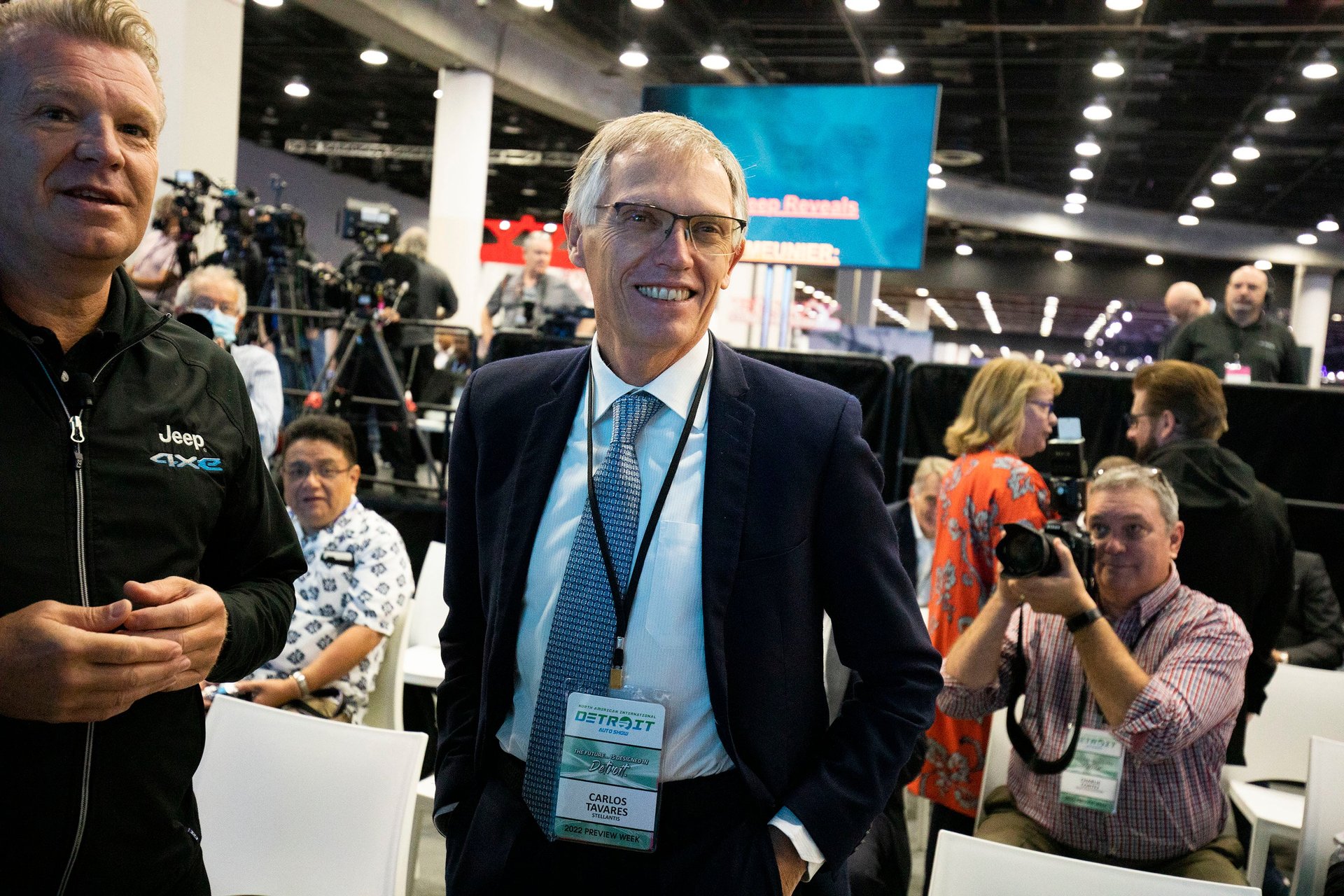Stellantis CEO says tariffs on Chinese EVs are a 'major trap'
The automaker is working with China's Leapmotor to sell electric vehicles outside of the country

Stellantis CEO Carlos Tavares expects that Western tariffs on Chinese electric vehicles could fuel inflation and hurt sales across Europe, calling them a “major trap.”
Suggested Reading
The United States earlier this month said tariffs on some EV imports will quadruple, from 25% all the way to 100%, to prevent Chinese automakers from flooding the market with cheap cars. The tariffs, which will be phased in over the next three years, will go into effect on August 1.
Related Content
European Union officials have been investigating China’s subsidies for domestic EV makers for months. The E.U.’s regulatory arm, the European Commission, is expected to unveil an initial decision on June 5.
China has threatened to retaliate against the West with its own tariffs. Liu Bin, chief expert of China Automotive Technology & Research Center, told the state-owned Global Times that tariffs of up to 25% could be raised on imported vehicles.
“When you fight against the competition to absorb 30% of cost competitiveness edge in favour of the Chinese, there are social consequences. But the governments, the governments of Europe, they don’t want to face that reality right now,” Tavares said at a Reuters Events Automotive Europe conference in Munich on Wednesday.
The CEO of the company behind brands like Jeep, Dodge, and Alfa Romeo added that “we are not talking about a Darwinian period, we are in it,” and that the price war with Chinese rivals would be “very tough.”
Chinese car exports have surged in recent years. Japan, previously the world’s top exporter of cars since 2017, lost that title to China in 2023. About 60% of global EV sales come from China’s car industry, according to the International Energy Agency, an intergovernmental group.
Several Chinese EV makers build or sell cars in Europe, including Chery and BYD. Several European carmakers are also owned by Chinese companies; Geely, for example, owns both Swedish automakers Polestar and Volvo. Tavares said that Chinese automakers are on track to sell 1.5 million cars in Europe, or 10% of the market and up to 10 assembly plants worth of production.
But Stellantis is in a unique situation. Although its not uncommon for carmakers to have partnerships with Chinese companies, Stellantis last week announced a first of its kind step: In September, it will start selling EVs made through its joint venture with Leapmotor outside of China.
Stellantis owns about 21% of the joint venture, Leapmotor International B.V., which will begin selling cars in nine countries this year: France, Italy, Germany, Netherlands, Spain, Portugal, Belgium, Greece, and Romania. The new EVs will launch in select countries in South America — including Brazil, where Stellantis has invested into hybrid vehicle production — and the India and Asia Pacific region, as well as Turkey and Israel.
“We will try to be Chinese ourselves, which means instead of being purely defensive vis-à-vis the Chinese offensive, we want to be part of the Chinese offensive,” Tavares said.